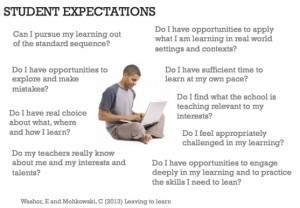These student expectations may be a starting point when considering a school e-Learning vision.
Below is CTS’s e-Learning vision. (2012-2014)
Introduction
The purpose of this strategic plan is to allow for the continued development of Coastal Taranaki School’s e learning capability. This is to develop a road map that enables our school to identify the practical steps we can take to improve our pedagogy around e learning, funding focus for the years ahead and strategies to support the school’s charter and vision.
School Charter and Vision
Coastal Taranaki School’s Charter highlights how technology and e learning are entwined in everything we are trying to deliver at school. The purpose for our school charter and teaching beliefs indicate these things. The purpose for our school charter states:
To ensure our students are supported as individuals to develop their qualities, talents and key competencies so that each may become a confident, connected, actively involved lifelong learner.
The connected and actively involved lifelong learner needs access to many facets of technology. The changing world of technology envelops students everyday life. To be ‘connected’ is a major influence in the lives of many of our students. Through social media or by text, our students live in a world we are struggling to understand and support.
The confidence of our students to become active lifelong learners require teachers to engage and support the students in ways that will benefit them in and out of school.
Our teaching beliefs state:
1. Foundation skills to be in place for all students – high levels of competence in literacy, numeracy, oracy, and information literacy – to enable access to all learning
2. Students who lead their own learning – developing future thinking and learning competencies so that students become innovative, creative and reflective learners who accept a growing responsibility for their own learning
3. Teachers as learning advisers who personalise learning – developing the foundation skills and future thinking competencies through learning experiences which challenge students to achieve personal excellence.
To enable these thing to happen we need to lay the foundations of support for the staff and students. This can be in the form of openness and ubiquitous learning, where content and learning can take place anywhere and at anytime on any device or tool through using content that is open to everyone, through quality appraisal where staff are expected to develop programmes that support anytime learning and engage students, by teaching digital citizenship to support the lifelong learning skills relevant in a changing online society.
For these things to happen we need infrastructure and access available to all staff and students. This needs to be reliable and suit the needs to the people using it.
For the ICT team to consider…
As an ICT team, do you agree with the vision?
Is all staff aware of this vision?
Does the pedagogy driving the vision need to be unpacked with the staff as a whole?
